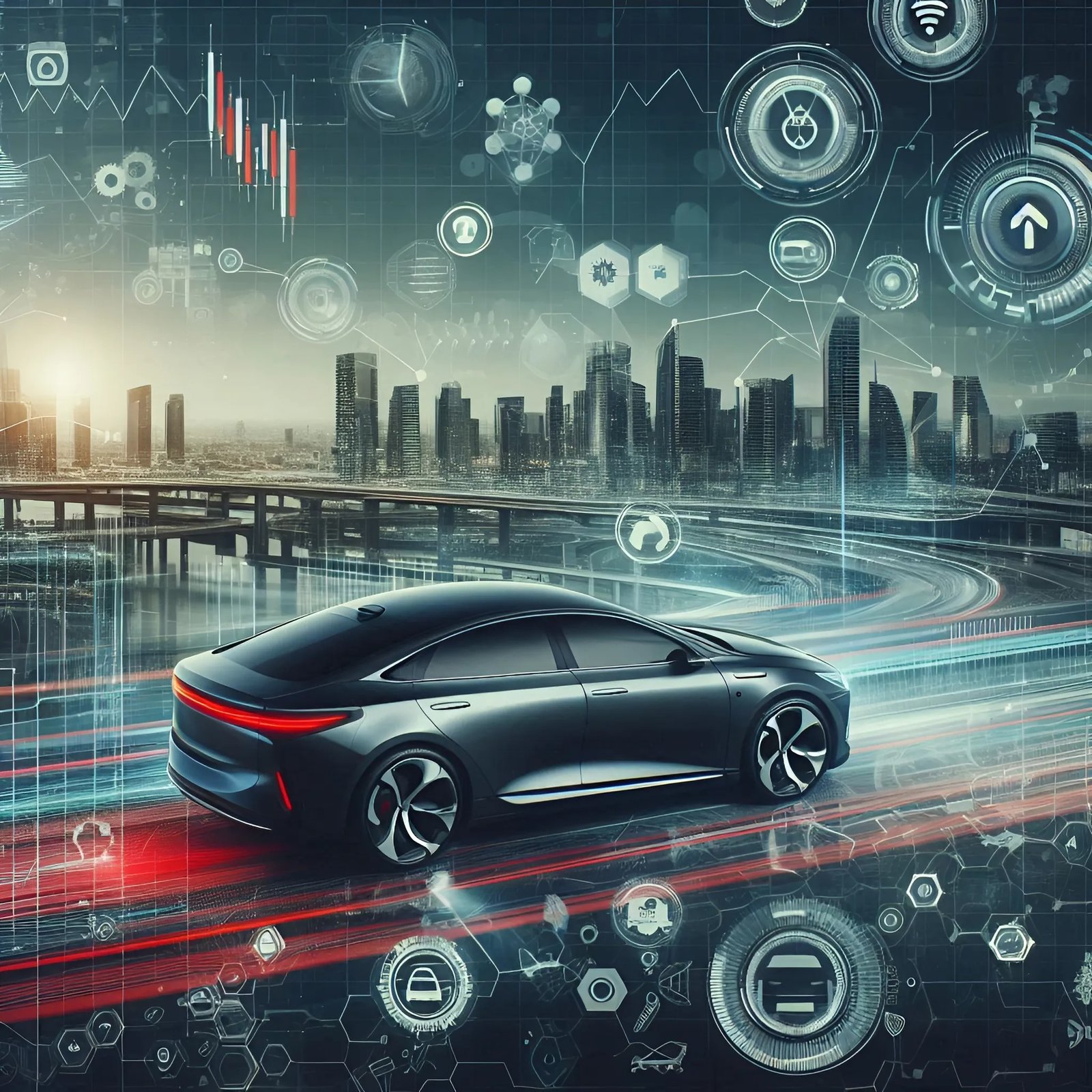Current Trends in the Automotive Industry
Electric Vehicles (EVs)
The global adoption of electric vehicles (EVs) is accelerating at an unprecedented pace. As governments and manufacturers push for a greener future, the market for EVs has seen significant growth. However, this expansion is not without its challenges. Innovations in battery technology, infrastructure development, and affordability remain critical areas of focus. Despite these hurdles, the future of EVs looks promising, with major automakers committing to all-electric lineups in the coming years.
Autonomous Driving
Autonomous driving technology continues to evolve, with companies like Tesla, Waymo, and others leading the charge. While fully autonomous vehicles are not yet a common sight on the roads, advancements in self-driving technology are steadily moving us closer to that reality. Safety and regulatory considerations remain the primary concerns, as governments and manufacturers work to ensure these vehicles can operate safely in various conditions. The journey towards autonomy is long, but the potential benefits, including reduced accidents and increased mobility, are driving this trend forward.
Sustainability in Manufacturing
As the world becomes more environmentally conscious, the automotive industry is embracing sustainability in manufacturing. Green manufacturing practices, such as reducing emissions during production and using recycled materials, are becoming standard. Automakers are increasingly investing in eco-friendly technologies and materials, from lightweight composites to biodegradable components. This shift not only helps reduce the industry’s carbon footprint but also appeals to consumers who prioritize sustainability in their purchasing decisions.
Connected Cars
The rise of the Internet of Things (IoT) has revolutionized the automotive industry, leading to the development of connected cars. These vehicles are equipped with advanced sensors, software, and connectivity features that enhance the driving experience. From real-time navigation updates to vehicle-to-vehicle communication, connected cars offer unparalleled convenience and safety. However, with increased connectivity comes the risk of cybersecurity threats. As a result, automakers are prioritizing robust security measures to protect against potential vulnerabilities.
Mobility as a Service (MaaS)
The traditional concept of car ownership is evolving with the advent of Mobility as a Service (MaaS). This trend involves offering transportation solutions that prioritize access over ownership. Ride-sharing services, car rentals, and subscription-based models are becoming increasingly popular, particularly in urban areas where parking and traffic congestion are significant concerns. MaaS presents a more flexible and cost-effective option for consumers, while also contributing to reduced vehicle emissions and traffic congestion.
Advancements in Safety Technology
Vehicle safety has always been a priority for automakers, but recent advancements in technology have taken it to new heights. From advanced driver-assistance systems (ADAS) to automatic emergency braking, the latest safety features are designed to prevent accidents and protect occupants. These innovations are not only saving lives but also influencing consumer buying decisions, as safety becomes a top priority for many car buyers.
3D Printing in Automotive Manufacturing
3D printing is revolutionizing the way vehicles are designed and manufactured. This technology allows for rapid prototyping, cost-effective production, and greater customization of automotive parts. As 3D printing technology continues to advance, its application in automotive manufacturing is expected to grow, offering automakers new ways to innovate and reduce production costs.
Emerging Trends to Watch
Artificial Intelligence (AI) in Automotive
Artificial intelligence is playing an increasingly important role in the automotive industry. AI-driven design and development are enabling automakers to create more efficient and innovative vehicles. Additionally, AI-powered diagnostics and predictive maintenance are helping to improve vehicle performance and reduce downtime. As AI technology continues to evolve, its impact on the automotive industry will only grow.
Smart Cities and Automotive Integration
The concept of smart cities is becoming a reality, with urban areas integrating advanced technologies to improve infrastructure and services. For the automotive industry, this means a greater focus on vehicle-to-infrastructure communication, autonomous driving, and sustainable transportation solutions. As smart cities continue to develop, the automotive industry will need to adapt to these changes, creating vehicles that can seamlessly integrate with urban environments.
Electrification of Commercial Vehicles
While electric passenger vehicles have gained significant attention, the electrification of commercial vehicles is also on the rise. Electric trucks and buses are becoming more common as companies seek to reduce their carbon footprint and comply with stricter emissions regulations. However, the electrification of heavy-duty vehicles presents unique challenges, such as battery size and range. Despite these obstacles, the market for electric commercial vehicles is expected to grow, driven by advancements in battery technology and increasing demand for sustainable transportation solutions.
Economic and Market Influences
Global Supply Chain Disruptions
The global automotive industry has faced significant supply chain disruptions in recent years, particularly due to the COVID-19 pandemic. These disruptions have affected the production and availability of vehicles, leading to delays and increased costs. Automakers are now focusing on building more resilient supply chains, diversifying their supplier base, and investing in local production to mitigate the risks associated with global disruptions.
Consumer Trends and Preferences
The way consumers shop for vehicles is changing, with a growing preference for online car shopping. Digital platforms and virtual showrooms are becoming the norm, allowing consumers to browse, compare, and purchase vehicles from the comfort of their homes. Social media and digital marketing also play a significant role in influencing consumer decisions, as buyers increasingly rely on online reviews, influencer endorsements, and targeted ads to guide their purchases.
Regulatory Changes
The automotive industry is subject to a complex web of regulations, particularly related to emissions standards and environmental protection. Governments around the world are implementing stricter emissions regulations to combat climate change, pushing automakers to develop cleaner and more efficient vehicles. In addition to emissions standards, there are also government incentives for electric vehicle adoption, which are driving the shift towards greener transportation options.













